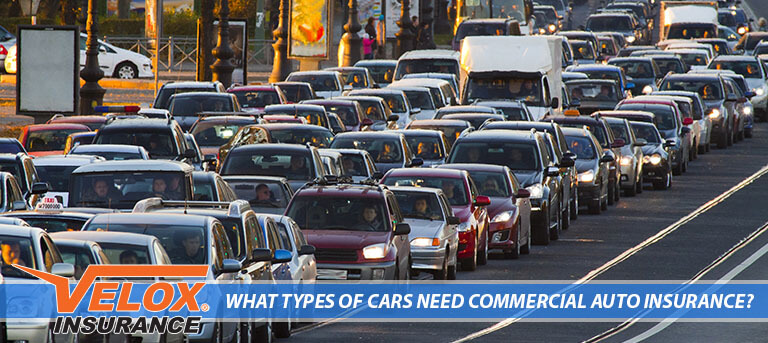If you drive for business, either your own or the one where you are employed, then you are the business’s representative behind the wheel. As a result, any accidents or other driving hazards that occur might not only reflect on you, but also the business. That is why most businesses and sole proprietors must carry commercial auto insurance.
Commercial auto insurance looks a lot like standard auto insurance. However, it is designed with specific terms and conditions that account for the business’s investment in the driver and vehicle. The reason it must be that way is because when someone drives on behalf of a business, the business could financially suffer following an accident. A commercial auto policy will protect the business entity.
One thing that many people wonder about with commercial insurance is which vehicles will need this coverage. With some vehicles, the need is obvious, but with others the line between personal and commercial driving blurs. In some cases when you do not think you need business auto insurance, you actually do.
Let’s take a closer look at how different vehicles qualify for commercial auto coverage.
Company-Owned Fleets
This is the clearest example of when you need commercial auto insurance. If your company owns a vehicle (or a fleet of vehicles), then those vehicles are the business’s liability. As a result, they need commercial auto insurance. This coverage will apply both when someone drives this vehicle during their normal working hours and if they drive it when off the clock. No matter when you drive this car, it still belongs to the business. Therefore, commercial auto insurance is the only solution.
Personal Vehicles
Sometimes, a personal vehicle does need commercial auto insurance, which surprises many people. After all, the vehicle does not belong to the business.
However, when a driver operates under the business’s direction, the business still assumes liability for any accidents that might occur. Therefore, they will need a special type of coverage called hired/non-owned auto liability insurance. This coverage pays third parties on the business’s behalf when someone driving their own car on business is at-fault for an accident.
Keep in mind, however, that this does not exclude an employee driver from needing to keep their personal car insurance. Their own liability coverage will not apply at this time. However, their physical damage insurance still might. Plus, they will need to keep their coverage for all times when they are driving privately. Additionally, accidents that occur during someone’s commute do not merit this coverage.
Hired/Rented Vehicles
Another time where you might need hired/non-owned auto liability insurance is when you drive a car that the business plans to use temporarily. For example, you might rent vehicles to move or transport passengers to a special event. In this case, you will need this coverage even if the rental company has its own coverage. Someone could still sue your business when an accident occurs, even when you are driving a vehicle you do not own.
Personal Cars Used Privately
Some vehicles qualify as commercial because of their sizes and weights. As a result, they will likely need commercial insurance even if you do not plan to use them for business purposes. These larger vehicles usually have significantly high liabilities, which is why they usually require commercial registration and business auto insurance.

